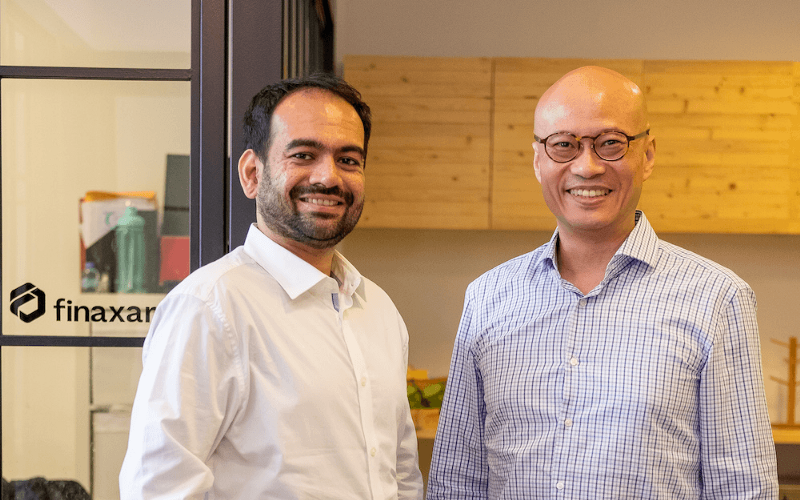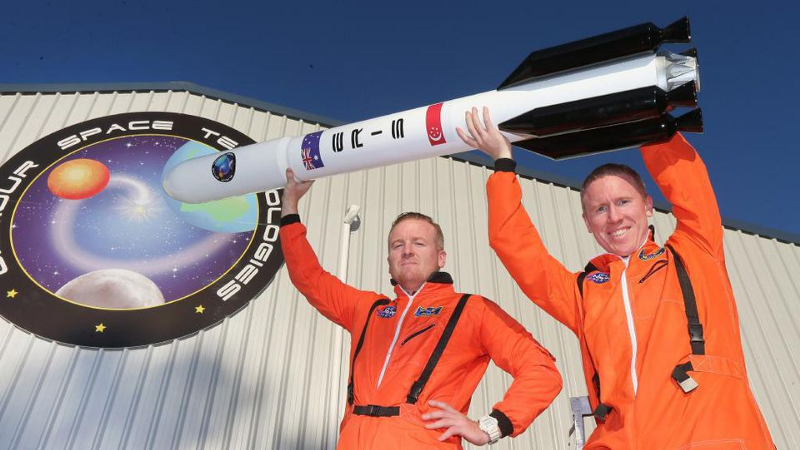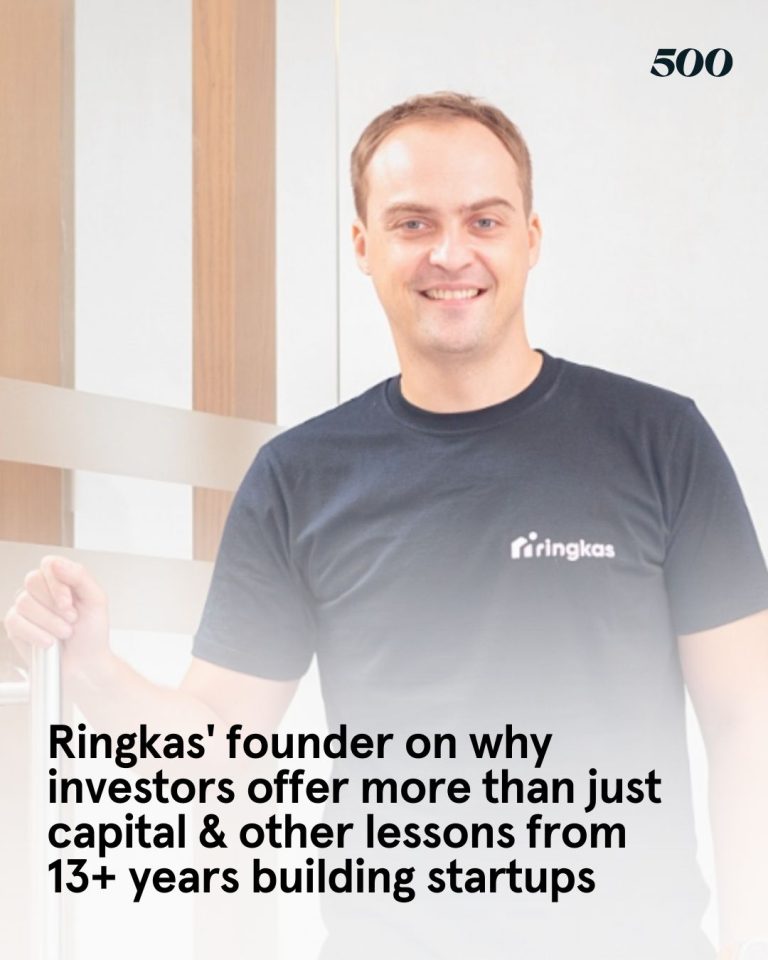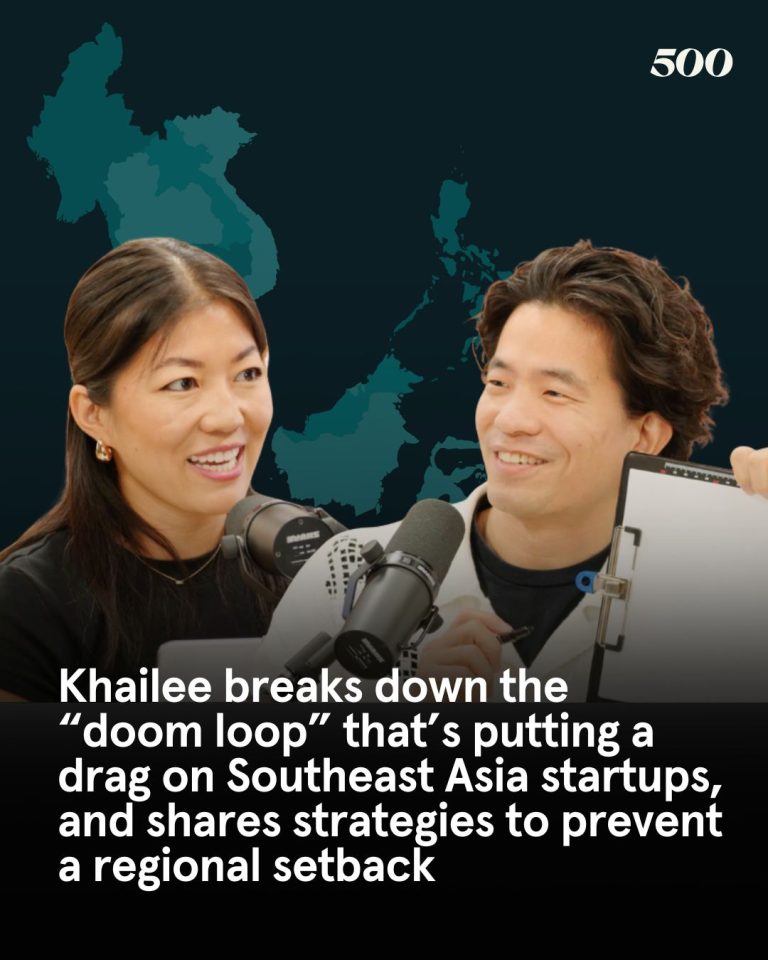Financing the gap
- When “financing” and “SMEs” are used in the same sentence, peer-to-peer (P2P) lending platforms usually come to mind. The P2P model typically isn’t exposed to the risk of bad loans as they act as intermediaries between borrowers and lenders.
- 500-backed Finaxar is going down a different path, acting as a balance sheet lender and taking on the credit risk of the borrower. The company was recently highlighted for its alternative financing model for SMEs and how it is navigating a landscape hit by the pandemic.
- How does it all work? “We just go and source a large pool of money from a few institutions….Let’s say they allocate 10 million dollars to us, so what happens is that we lend the money out and we basically just keep it rolling, because when clients pay back, we deploy it back again,” Dr. Tan Sian Wee, co-founder and Executive Director of Finaxar, told KrASIA.

- Since the pandemic hit, demand for loans have gone up, with Finaxar reporting a 20–25% monthly increase in loan disbursement. Its non-performing loan (NPL) rate is in the “low single digit”.
- Depending on the market, Finaxar provides loans from as small as US$1,000 to up to US$500,000, and has disbursed over US$70 million in loans to SMEs since its inception in 2016.
- Cooperating rather than competing, the startup also partners with banks via its “lending-as-a-service” solution, providing digital lending technology to banks, via a range of services including “customer origination, loan processing, underwriting, monitoring, disbursement and collections”.
- What’s next for Finaxar? The startup will soon roll out its “buy-now-pay-later” solution in Singapore aimed at businesses.
- Read Finaxar’s full story here.
Fertile grounds

- US$1.8 billion — that’s the equity worth held by founders of 20 prominent Singaporean startups, according to data compiled using intelligence platform VentureCap Insights and regulatory filings.
- 500-backed ecommerce platform Carousell made the list, along with others.
- While the equity worth may seem substantial, the article points out that translating these numbers into “real gains” is not guaranteed, especially with the economic uncertainties brought on by the pandemic.
- Advice in the article for startups hoping to exit: focus on customers, invest in technology, and develop a strong management team, ultimately leading to building a sustainable company that can go public or get acquired, giving founders the financial ability to “either start the next wave of startups, or support the growth of new startups.”
- Other views direct us to the maturation of Singapore’s startup ecosystem. And it’s not only the founders who stand to benefit from driving these “new avenues of wealth creation”.
- “Now the next milestone is really getting the exits. And I think what that would create is even more investment into the ecosystem and an even better cadre of people who would be leaving otherwise traditional jobs to take a punt at becoming entrepreneurs,” adds Vishal Harnal, partner at 500 Startups.
- “The billionaires of South-east Asia are not going to be continually born out of old industry. It’s going to be in technology.”
- Get the full story here.
Making the space jump
- “Australia is at a tipping point in the space industry,” said Adam Gilmour, CEO of 500-backed space rocket company Gilmour Space Technologies.

- According to Gilmour, this depends on the government looking beyond university-led research and investing in businesses in this space.
- Domestically, the government often focuses on university research and development, which have low tech readiness levels (TRL). “The TRL goes from 0 to 9. 3 is an early prototype, 6 is an advanced prototype and 9 means it’s a mission that has been completed,” Gilmour explained. “Universities usually take something up to a 2 or 3 and can’t take it beyond that.”
- He looks back at the reactions he got when he first set up the company in 2012. “Every politician we met thought we were crazy,” he said. “No one thought it was something Australia could do.”
- Just last month though, Prime Minister Scott Morrison announced a ~US$1.1 billion in new funding for six emerging areas of priority. One of the industries was space.
- “By 2030, we want to triple the size of our space sector — adding $12 billion (~US$8.7 billion) to our economy and creating up to 20,000 new, high-skilled jobs,” Morrison said.
- “The next five years will be very exciting,” Gilmour concluded.
- Read the full interview here.
Missed out the last Daily Markup? Go here to check it out.
You can also find us on LinkedIn, Facebook, Twitter, and Instagram.

500 Startups is a venture capital firm on a mission to discover and back the world’s most talented entrepreneurs, help them create successful companies at scale, and build thriving global ecosystems. In Southeast Asia, 500 Startups invests through the pioneering 500 Southeast Asia family of funds. The 500 Southeast Asia funds have backed over 240 companies across multiple sectors from internet to consumer to deep technology. It continues to connect founders with capital, expertise and powerful regional and global networks to help them succeed.
This post is intended solely for general informational or educational purposes only. 500 Startups Management Company, L.L.C. and its affiliates (collectively “500 Startups”) makes no representation as to the accuracy or information in this post and while reasonable steps have been taken to ensure that the information herein is accurate and up-to-date, no liability can be accepted for any error or omissions. All third party links in this post have not been independently verified by 500 Startups and the inclusion of such links should not be interpreted as an endorsement or confirmation of the content within. Information about portfolio companies’ markets, competitors, performance, and fundraising has been provided by those companies’ founders and has not been independently verified. Under no circumstances should any content in this post be construed as investment, legal, tax or accounting advice by 500 Startups, or an offer to provide any investment advisory service with regard to securities by 500 Startups. No content or information in this post should be construed as an offer to sell or solicitation of interest to purchase any securities advised by 500 Startups. Prospective investors considering an investment into any 500 Startups fund should not consider or construe this content as fund marketing material. The views expressed herein are as at the date of this post and are subject to change without notice. One or more 500 Startups fund may have a financial interest in one or more of the companies discussed.




